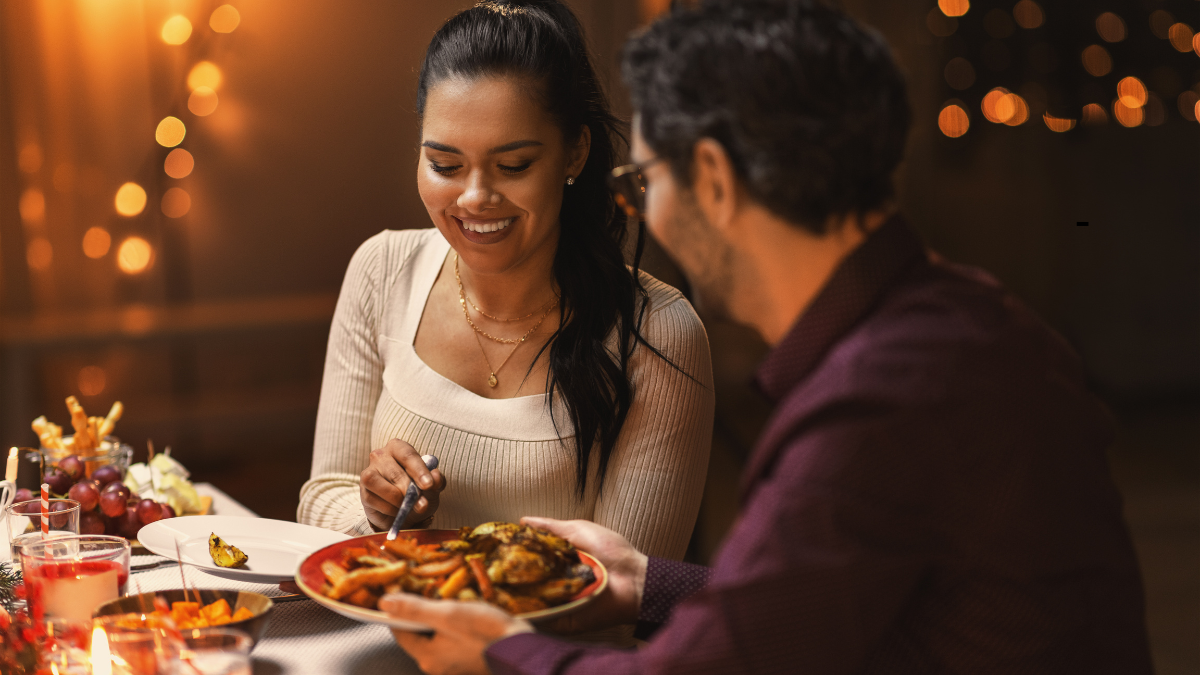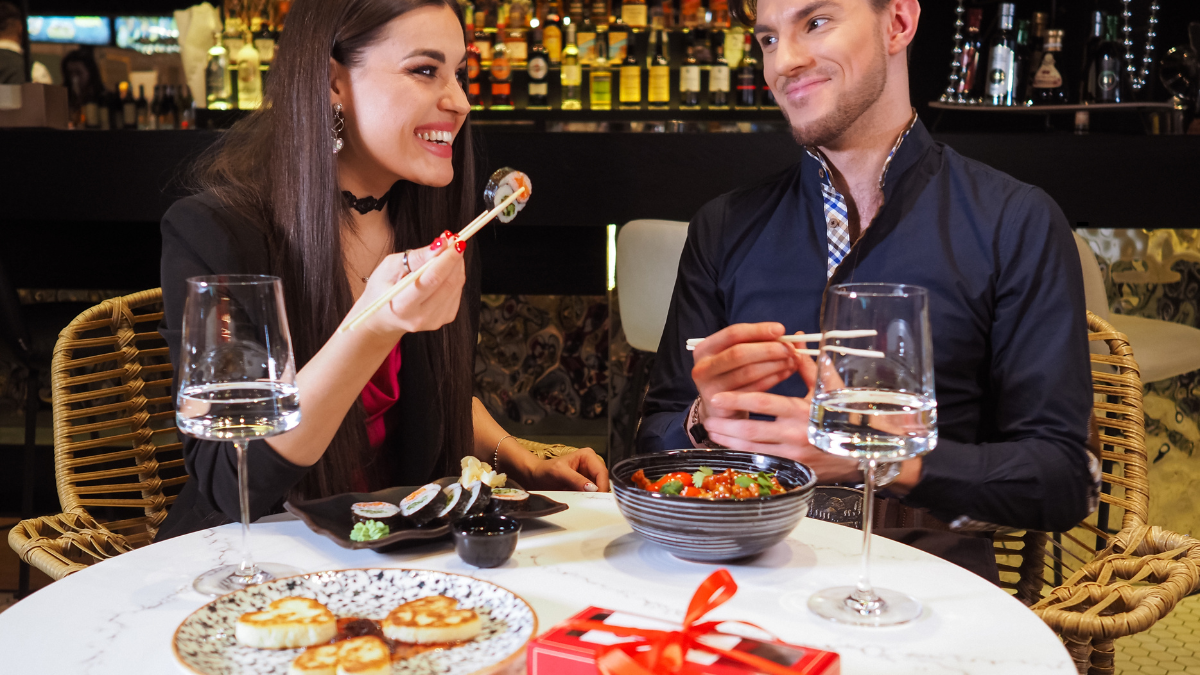Do you know you can easily spot a Narcissist through their eating habits? You’re surprised! Let me share my personal experience with you.
My Experience With A Narcissistic Girlfriend
When I broke up with her, everything seemed fine at the beginning. She was very charming, confident, and everything I thought I wanted in a partner.
But after some time, I started noticing small things that made me question everything. It wasn’t just her words or actions; it was those little habits we all have that can reveal more than we realize. One habit, which in retrospect was a massive red flag, was her eating habits.
This might sound trivial at first, but the way we eat reveals much about our character. In my case, her eating habits made her look so different in this new light.
Here are eight eating habits that could indicate narcissism in your partner, as I discovered through my experience.

8 Eating Habits That Reveal Your Partner May Be a Narcissist
1. Too Much Focus on Appearance
One of the first problems I observed was the degree of obsession she had over the appearance of her food.
It didn’t simply have to look good; it had to fit into a picture-perfect ideal. She would spend ages arranging the food on her plate, and on the occasion when the food didn’t look right, she would start complaining.
I initially thought it was just a quirky thing, but later I realized it was more than that. For someone with a narcissistic personality, food isn’t just about eating—it’s an ornament. It must align with their image of perfection.
They can become so consumed with how things look that they rarely enjoy the meal. This obsession with image during something as basic as eating is a hallmark of narcissism.
Narcissists often treat food as a tool for enhancing their own self-image, seeing it as a measure of their personal brand.
Related: 10 Phone Habits I’ve Noticed That Can Help Spot a Narcissist
2. Desire to Always Receive Compliments
There were several times when we would share a meal, and she would ask, “Do you like the way this looks? Isn’t it perfect?”
I soon found out that failing to shower sufficient praise on her efforts would sour her day. Eating was no longer about food—it was a way to ensure that she was always validated.
Narcissists need constant attention and admiration, and even their food becomes part of this need for affirmation. It’s not about savoring the meal, but about having others recognize their greatness—even in the most trivial activities.
Constant compliments about the simplest things, like the way a meal was prepared or the choice of restaurant, indicate a need for constant reassurance of superiority.
Related: How Narcissists Make You Look Crazy
3. Obligatory Control Over Meal Choices
Another thing I noticed was her strict control over what we ate. She was a very picky eater, and if I suggested something she wasn’t familiar with, she would resist or even throw a tantrum.
Narcissists need to control everything around them, and food is no exception. They expect others to cater to their preferences without regard for anyone else’s desires or needs.
When I tried encouraging her to try something new, she would insist that it was “too unhealthy” or “not good enough.”
The selection of food became less about shared experiences and more about her need to dictate the situation.
Narcissists often manipulate situations to ensure they get what they want, even in simple matters like choosing a restaurant.
Related: 20 Strong Narcissistic Phrases To Watch Out For

4. Inability to Share Food
This one really caught me off guard. One night, we were at a restaurant, and when I tried to take a bite of her food, she quickly pulled her plate away.
“I don’t share food,” she said, as if it were a non-negotiable rule. I laughed it off, but it soon became clear that it wasn’t about the food—it was about control and ownership.
Narcissists often struggle with sharing or compromising, and this applies to even something as insignificant as food.
It’s a representation of how they view their relationships—everything belongs to them, and they’re unwilling to share the spotlight or resources.
A narcissist won’t just refuse to share their food; they may also become upset or angry if you attempt to take a bite of something they consider “theirs.”
This feeling of entitlement can extend across many aspects of the relationship, leaving you with little space to voice your own desires or needs.
Related: How To Turn The Table On A Narcissist
5. Manipulative Behavior Around Food
I also noticed how she used food to manipulate situations. If she didn’t want to do something or see someone, she would suddenly announce that she wasn’t hungry.
She would also use food to guilt-trip me if I didn’t want to do something. “I cooked this special meal just for us, and you’re not even eating it?” she would say.
It was as if she used food to make me feel guilty or obligated, twisting the situation to get what she wanted. Narcissists use tactics like this to manipulate emotions and control others, and food is often the most convenient tool for doing so.
Guilt-tripping is frequently used by narcissists to control those around them.
In the context of food, when you refuse a meal or fail to give them attention during mealtime, they might accuse you of being selfish or ungrateful, further asserting their need for control.
Related; 27 Tricky Ways Narcissists Manipulate Others
6. Food as a Badge of Honor
The types of restaurants we went to and the food we ate were more about status than taste.
She preferred dining at expensive, exclusive places, and if the restaurant didn’t meet her expectations, she would criticize the food quality.
Narcissists tend to associate everything with their status, and food is no exception. To them, eating isn’t just about satisfying hunger; it’s a way to express their high social status and wealth.
It became clear that eating out was no longer a shared experience—it was a performance. The more elite the restaurant, the more she could showcase her superior taste and judge others for not measuring up. Dining out became an extension of her self-worth.
7. Self-Centered Eating Habits
Another indication was how she had no regard for anyone else’s dietary preferences or restrictions. Every time we ate together, it was always about what she wanted.
She never considered what I might like or any dietary restrictions I had. Narcissists tend to be insensitive to the needs of others, and this extends to their eating habits.
If your partner consistently ignores your preferences or health needs around food, it might be a sign that they are more focused on their own desires than on nurturing the relationship or considering your well-being.
8. Binge Eating and Lack of Moderation
Finally, I started noticing how much she could eat at times, and how she had no qualms about going overboard with indulgent or unhealthy food.
Narcissists, in general, have difficulty recognizing their flaws or limitations. To them, they deserve the best of everything, including lavish meals.
Overindulgence can be a way of compensating for deeper insecurities or reinforcing a sense of entitlement.
While it’s normal to indulge occasionally, narcissists tend to do so without any sense of moderation or self-control. It’s about satisfying their desires in the moment, with little regard for the consequences.
Final Thoughts
Identifying narcissistic traits in someone you care about is never easy, and it often starts with noticing small, seemingly harmless habits like how they eat.
While these eating habits alone aren’t definitive signs of narcissism, they can be a signal to look deeper, especially when accompanied by other narcissistic behaviors.
If your partner’s eating habits reflect a need for control, admiration, or manipulation, it’s time to take a closer look at the relationship.
Trust your instincts; the way we eat—and how we relate to food—can reveal a lot about who we are.
If you recognize these traits in your partner, it’s essential to have an honest conversation about boundaries and the dynamics of your relationship.
It’s not always easy to confront these behaviors, but the sooner you notice them, the sooner you can take steps to protect your well-being.

- 9 Things Women Are Afraid To Ask Their Husbands - 31/12/2025
- If Your Husband Uses These 10 Phrases, He Might Be Embarrassed by You - 31/12/2025
- 150 Truth Or Dare Questions For Teenagers - 31/12/2025
